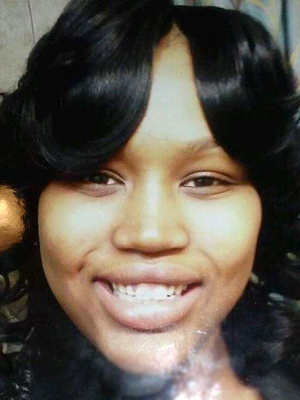 Kelly Valen, author of The Twisted Sisterhood: The Dark Side Of Female Friendship Explored, wrote a stirring essay in 2007 for the New York Times entitled, My Sorority Pledge? I Swore Off Sisterhood. That essay was the impetus of her subsequent book. I heard about the book first. It is a compilation of 3000 surveys from women around the country who spent at least 30 minutes answering 50 questions. While she claims the survey is a good sampling of different ages/groups/regions, it appears to be more of a “straw poll” meaning women chose to answer the survey, they were not chosen at random to sit in a secure room and answer questions. Admittedly, she says, “I launched an online survey and have now heard from more than 3,000 women about their female relationships.” So, while interesting, it’s not exactly scientific.
Kelly Valen, author of The Twisted Sisterhood: The Dark Side Of Female Friendship Explored, wrote a stirring essay in 2007 for the New York Times entitled, My Sorority Pledge? I Swore Off Sisterhood. That essay was the impetus of her subsequent book. I heard about the book first. It is a compilation of 3000 surveys from women around the country who spent at least 30 minutes answering 50 questions. While she claims the survey is a good sampling of different ages/groups/regions, it appears to be more of a “straw poll” meaning women chose to answer the survey, they were not chosen at random to sit in a secure room and answer questions. Admittedly, she says, “I launched an online survey and have now heard from more than 3,000 women about their female relationships.” So, while interesting, it’s not exactly scientific.
What bothers me the most about the story is the beginning, not in the book, but in the New York Times article. Her story begins on a college campus in the late eighties.
“I walked through the sorority doors all those years ago as a “good girl,” an 18-year-old milkmaid from St. Paul.”
Like many college freshman, Valen truly enjoyed her freedom and fun, “I indulged, partied hard and, a scant two months into the semester, lost my virginity. But not in the traditional way.”
During a party one night, she and a boy hit it off, “After the usual alcoholic overindulgence, I followed him upstairs, where I soon passed out on his sofa. There, I assumed the starring role in a garden-variety “ledge party,” my deflowering on display for anyone desiring a peek.”
While she was unconscious, the pledge raped her, but Valen calls it a “deflowering.” She even praises some of the fraternity brothers for removing her after the rape.
“I suspect mine was one of the duller productions, but, alas, I remember none of it. I learned later that some sympathetic brothers had objected to the spectacle and pulled me from the wreckage, which, to me, was remarkable.”
Sympathetic. Remarkable. Really?
According to the Center for Problem-Oriented Policing:
- Rape is the most common violent crime on college campuses today.
- Ninety percent of college women who are victims of rape or attempted rape know their assailant.
- Fewer than 5 percent of college women who are victims of rape or attempted rape report it to police.
- However, about two-thirds of the victims tell someone, often a friend (but usually not a family member or college official).
The Center’s research also suggests that half of all victims who are raped do not label it rape. “Many acquaintance rape victims (using the legal definition of rape) do not label their assault as rape. Perhaps it seems unimaginable that an acquaintance would rape them, and victims often initially blame themselves. Acquaintance rape victims offer a range of reasons for not reporting the rape to authorities.”
Rape victims undergo different forms of emotional distress:
- embarrassment and shame,
- fear of publicity,
- fear of reprisal from assailant,
- fear of social isolation from the assailant’s friends,
- fear that the police will not believe them,
- fear that the prosecutor will not believe them or will not bring charges,
- self-blame for drinking or using drugs before the rape, self-blame for being alone with the assailant, perhaps in one’s own or the assailant’s residence,
- mistrust of the campus judicial system, and
- fear that their family will find out.
“In the days that followed, my date apologized to me and to his brothers, but the fraternity blackballed him anyway; by semester’s end, he had dropped out of school. There was never talk of criminality; for whatever reason, we simply didn’t think of it that way. And I felt my own heavy burden of responsibility for getting drunk and losing control,” says Valen.
The rest of her essay describes her sorority sisters who eventually dismissed her, which she chalks up to the mean girl mentality. Maybe. I’m more likely to believe something else went on in the few months that followed the rape. Still, it was her sisters that she counted on, and she is not alone. Her survey revealed that 90 percent of respondents felt, “currents of meanness and negativity emanating from other females. Almost 85% of those who took part in the 50-question survey admitted having suffered serious, life-altering knocks at the hands of other women.”
Surprised? Not really.
Margaret Mead, the brilliant cultural anthropologist once claimed, “Human nature is potentially aggressive and destructive and potentially orderly and constructive.” She also noted, “Instead of being presented with stereotypes by age, sex, color, class, or religion, children must have the opportunity to learn that within each range, some people are loathsome and some are delightful.”
Are some women loathsome? Yes, but not because they are women. It’s because they are human.


